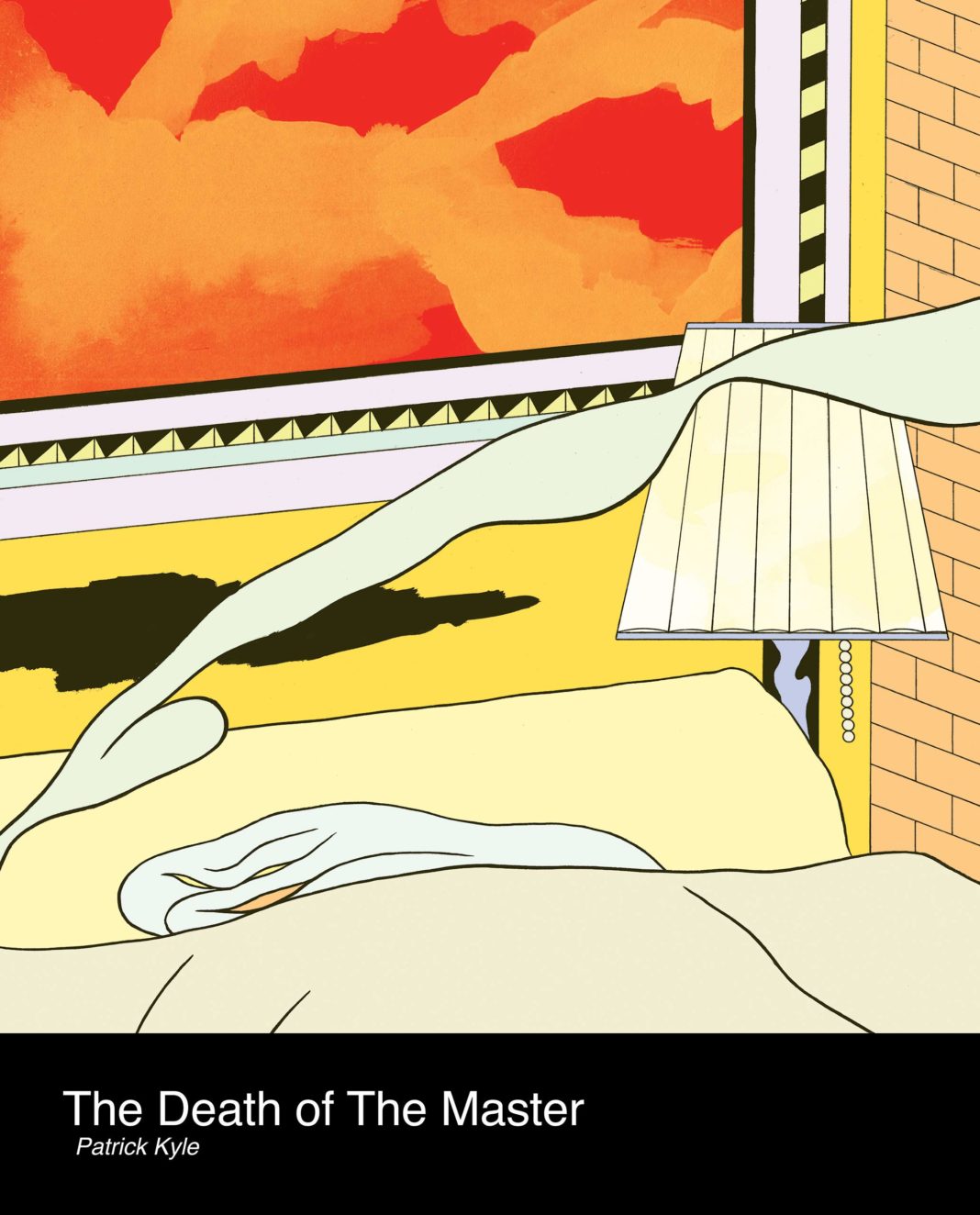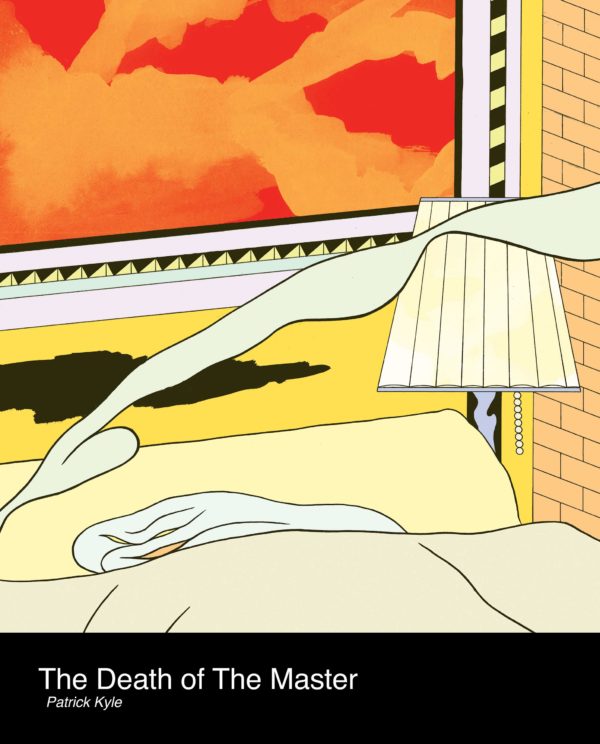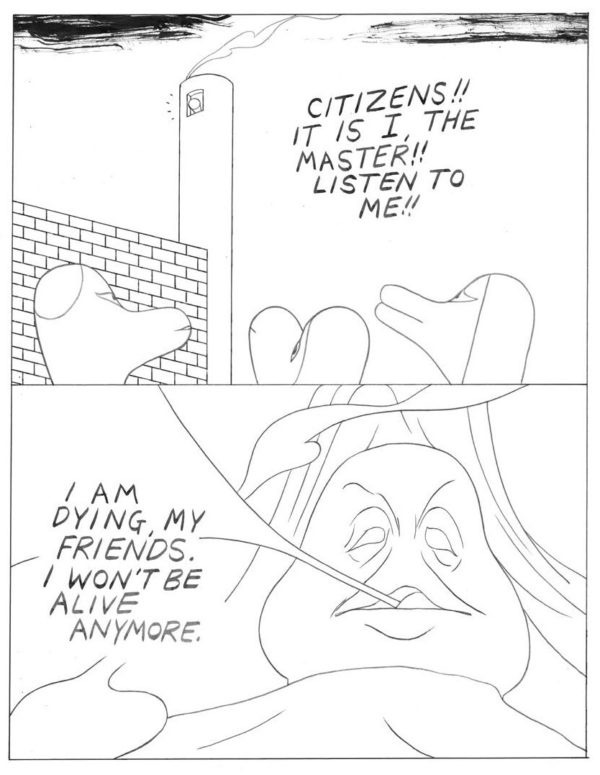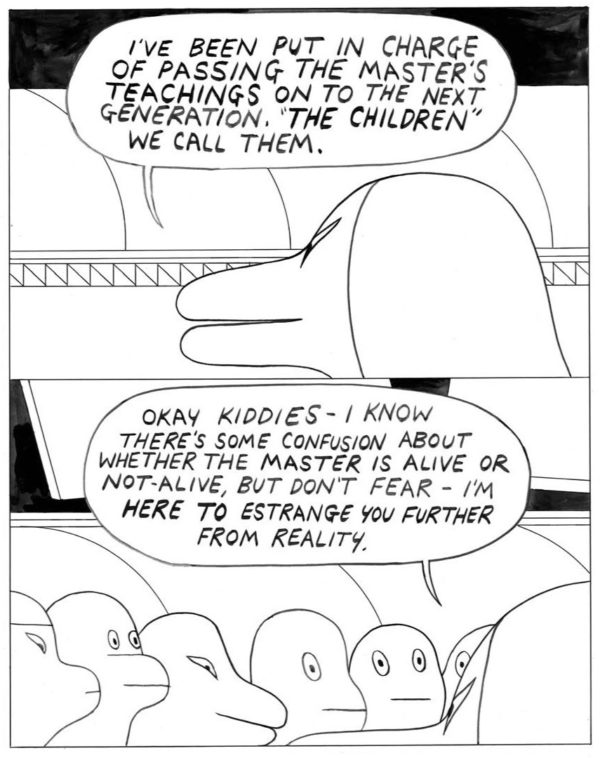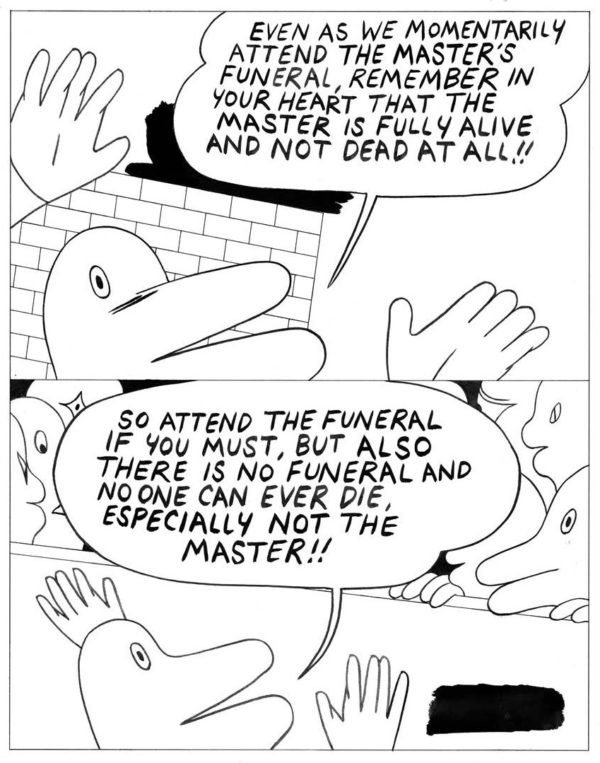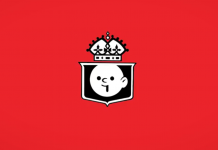The Death of the Master
By Patrick Kyle
Koyama Press
There’s a moment in Patrick Kyle’s The Death of the Master that reminded me of something that happened in my own life that put into physical reality what he used as a metaphor. In order to assure a crowd of followers of the master who has died in this book that the lies they have always believed are still true, a brick wall comes apart and a long tattered rag flutters in the wind as if communicating to the followers. It is really nothing, just a floppy piece of cloth saying nothing at all, but the brick wall comes back together and hides the truth again to everyone’s satisfaction.
Several years ago, we had to have the foundation in our basement worked on because it is over 100 years old and it is stone and there were gaps appearing in the huge stones. If the foundation crumbles, so does our house and then, of course, our lives. We had to believe in that foundation and the belief had to be true. But there was a part of the basement that had a wooden wall built over the foundation and we began to think that maybe we should tear down the wall to make sure that section of stone wall was in good shape.
Our contractor asked us if we really wanted to unleash that kind of truth because once we knew it, we could never go back. We did. We wanted the strength of the foundation to match our faith in it. So we took down the wall and there we found the huge stones crumbling to the floor and the foundation buckling it. There was no question that some emergency work needed to be done. Our contractor dated the wooden wall to the 1950s. Someone, rather than dealing with a problem, built a wall over it and set into motion a succession of families living in the same house for over 50 years, all relying on their faith that the foundation was okay.
Unlike the crowd in The Death of the Master, we didn’t have the option of watching the wall close up again and comfort us by obstructing the truth. And that is kind of at the root of what Kyle’s book is about.
Realized in the most obtuse manner, Kyle’s story takes place in some kind of factory where small balls roll around in endless, abstract ramps and the workers there all follow an infallible leader called the Master, whose unexpected death causes rumors second and third guessing whether he is actually dead or not, and spiraling reactions by those who never considered that such a person could die. They have always believed everything he said, attached some form of omnipresence to him, and the idea that he no longer exists causes for many of his followers an existential crisis that they can’t make heads or tails out of. Some of them just don’t really understand what death is.
Up until this point, all reality has been designed around the words of the Master, and so what follows his passing are frantic attempts by his followers to shape their post-Master existence by going over the advice he has given, the stories he has told, and translate them into new meanings. These lead to confusion for some, mystical experiences for others, all trying to move forward by using their limited scope.
Kyle seems to be lampooning the mindset of cults, but by placing the action in a factory, he makes everything that happens seem more universal, even normal, and in that way, widens the satire to the mindset of communities or even cultures. He’s tackling groupings that we agree upon, whether they are large or small and whether they actually have a logical basis for existing or just some delusional purpose, as with, say, race in regard to racists or nationalists or sports fans or comic book fans or whoever.
The idea is that all fervor is based on beliefs that are either totally false or heavily tinkered with, and when we place that fervor at the core of how we qualify the universe, it means our entire existence is false. Opposition to the views of others in politics, religion, lifestyle, or comic books are based in this false view of existence, a defense against those who would chip away at the wall that hides the foundation of my house that is crumbling.
Kyle portrays this entire endless dynamic in The Death of the Master, but in typical Kyle form, he doesn’t lay it out with intensity, but rather abstraction and dry humor. The all-encompassing lies that we use as definitions of reality and which collide with each other, as Kyle presents them, are the sources not of tragedy but of farce. And he’s surely right if only to add another layer to anyone’s false view of the universe. Look around the world — it’s very likely a tragedy, but since we have to live in it, embracing it as a farce may be the only way to get through it without going mad. We’re not exactly keeping something behind the wall — more reframing what we see once we tear that wall down.


